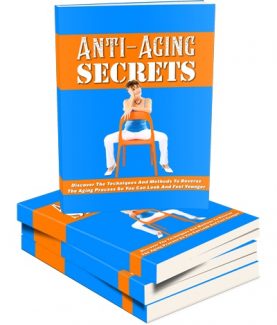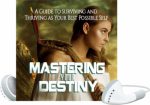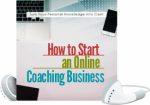 License Type: Master Resell Rights
License Type: Master Resell Rights  File Type: ZIP
File Type: ZIP
 SKU: 64140
SKU: 64140  Shipping: Online Download
Shipping: Online Download
Sample Content Preview
Chapter 1: You Can Control How Fast (or Slowly) You Age
No one wants to get older but unfortunately, until they discover an elixir of youth, it’s fairly unavoidable.
But just because you have to get older, no one said you had to do it quick-ly. And no one said you couldn’t age well and keep your youthful good looks, energy and health!
Many of us make the assumption that getting old automatically has to mean getting covered in wrinkles, losing our ability to walk around and eventually developing incontinence and dementia. As it happens though, none of these things are inevitable and most of them are only partially related to age!
And you can see this too just by looking around! While some people seem to be struggling to stand up straight and remember their name at age 65, others are still playing sports and writing books well into their 80s and 90s.
Is the difference entirely genetic? Not at all! In fact, there are numerous lifestyle changes that can make all the difference to the way you feel as you age and many of the problems that are associated with old-age can actually be avoided entirely.
So yeah, Aging is still inevitable. But the way you age is almost entirely up to you!
The difference comes down to your knowledge and your ability to apply that knowledge to make the most of your own body and health. YOU have the choice and the sooner you take action, the more effectively you can stave off the most unappealing aspects of getting older.
Yes, that’s right, this isn’t just a book for ‘old people’. It’s for young people too. In fact, it’s more aimed at young people because you are the ones who have the time to ensure you get the very most out of your body and mind as you get older.
But How Do You Slow Aging?
Anyone can claim that Aging is something you have control over. The hard part is backing that claim up with some hard evidence.
How can you really slow down your Aging? And how can your decisions end up putting your body in ‘fast forward’ mode?
Here are some examples…
Mobility
A lot of people will tell you that your knees have a finite amount of time before they start to tire out. The same goes for your back.
But more and more, we’re discovering that’s not true. The ‘functional strength’ crowd are making it very apparent that you can keep on training into old age and that in fact, things like running should give you more longevity.
The problem is just the way we’re training. And our lack of activity generally.
The way it goes for many people is that they stay very fit and healthy when they’re younger because they run around, play sports and generally engage in activity. Once they’re middle aged though, they slow down and they start sitting at the computer all day long. Their metabolism slows down yes but most of the changes they see in their body are really a result of being constantly stressed and constantly static. This results in muscle imbalances caused by maintaining the same posture for so long and it results in injury
when they do get active. Don’t use your back long enough and it’s sure to go when you try and lift that suitcase!
This injury then leads to ‘corrective’ posture and biomechanics. You have a bad knee or back, so you put more weight on the other leg/you hunch over.
This in turn means that you actually exacerbate the muscle imbalances that you already had. And the longer this goes on, the more of a hunch and a limp you can start to acquire and the more pain you can expect to experience.
The solution is not to be less active but to be more active – while making sure to use the correct technique.
Energy
Meanwhile, staying active can also boost your energy levels and help you to start feeling better. That means the tiredness and sluggishness that we feel as we get older again isn’t inevitable.
Actually, when you combine the right exercise regime with the right diet, you can increase not only your heart strength and circulation but also the efficiency of your mitochondria. Mitochondria are the small ‘energy factories’ of your cells. They exist to help you convert glucose into useable energy (ATP) and their number and strength is one of the big determining fac-tors that influences your energy output and the way you feel.
In fact, differences in mitochondria have been suggested to be one of the main differentiating factors between the energy levels of young children and those of older individuals. It’s why kids seem to be able to run around and around in circles for hours screaming, without ever tiring out.
Nutrition
Nutrition is also responsible for a large proportion of the problems you’ll struggle with as you get older. Contrary to popular belief, many of the health issues associated with old age are actually cumulative and result from years of poor nutrition. A lack of nutrients can lead to problems with vision, problems with hormone production, problems with bone density and much more. Thus by eating the right diet, you can stave off numerous conditions and stay healthier and stronger into older age.
Toxins, Cell Damage and Heart Problems
Many of the health complaints associated with old age can also be combated with the right lifestyle. Sure, it’s always possible to be unlucky and to suffer from cancer with no ‘cause’ as such. But this is much less likely if you are able to protect yourself with the very best, healthy lifestyle choices. For example, heart disease is one of the leading killers in men by far but it is very much possible to reduce the risk of this problem by getting plenty of exercise and sticking to a diet designed to keep your blood pressure and cholesterol at the most desirable levels.
Brain
The same rules apply to your brain as to the rest of your body. In other words, if you keep your nutrition up and actually keep using your brain it will stay nimble.
***
We’ll get into all of this and a lot more in greater detail in the subsequent chapters but hopefully this is enough of an explanation to make a believer of you. The point is, you do have control over the way you age and if you take the right precautions then you can stay healthy, mobile and able well into older age.
This book is going to act as your road map and your blueprint to help you do exactly that. Follow these tips and you’ll be able to fortify your body against the invading forces of old age!
Chapter 2: Fine Tuning Your Mental Clarity on a Daily Basis
So where to start? How about with the mind, seeing as the mind leads and the body follows. If you can keep your brain sharp and your mind nimble, then you will be able to enjoy life in at least some capacity and maintain your dignity. What’s more though, is that a healthy mind will help to automatically give you a stronger and healthier body. Your mind controls your movements after all and this is the key to maintaining good biomechanics and muscle control.
So let’s take a look at the issues that you might struggle with in this department as you age and how you can keep those problems at bay…
Cognitive Decline With Old Age
The thing we most often associate with age-related cognitive decline is forgetfulness.
When you reach a certain age, you start to forget where you left your keys a little more regularly and eventually you start to forget the names of your family. Just call everyone ‘Frank’, it’s easier.
Some degree of memory loss is fairly normal with age and is referred to as ‘age related cognitive decline’. However, in some cases it might take the more serious form of dementia or Alzheimer’s disease. The latter is caused by amyloid plaques and neurofibrillary tangles, which are caused by a build-up of protein fragments attaching to the cells.
This can lead to confusion and severe memory loss, which we know as dementia or Alzheimer’s. In some cases, confusion and memory loss are exacerbated by damage to the brain caused by a stroke or traumatic brain injury.
But long before that, comes the slight tiredness and the brain fog. It’s almost imperceptible but it’s definitely there. Like a computer that takes just an extra minute or two to boot up. No one else would notice, but you know it’s not running on all cylinders anymore. Not like it used to.
Think back: how much harder is it to wake up in the morning than it was five years ago? Back then you would likely be out all night drinking with
friends and then wake up the next day with energy to spare. It’s not your body that’s changed at this point: it’s your brain…
Or how about you think back even further (memory allowing…) to when you were just a little kid. Back then you could run around in circles for hours without ever tiring out. Likely you know kids who can still do the same thing.
These days though, many of us struggle just climbing the stairs!
Constantly feeling tired is no fun and neither is having half the enthusiasm you used to have when you were younger – or the ability or the passion for learning. Notice how young people are always learning new skills, making new friends and changing careers and that gets harder as you age.
Oh and what about mood? Have you noticed how you’re just much angrier all the time these days? What once wouldn’t have caused us pause for thought now has us growling under our breaths like mad people. What happened to that youthful optimism? If you understand the ‘law of attraction’ then you’ll know how being angry all the time will only lead to fewer opportunities and less enjoyment. Apparently it’s at the age of 60 when these changes really occur.
So what’s actually happening inside that cranium of yours to cause all this change?
Increasing Brain Energy and Mood With Nutrition and Nootropics
There are many things that change in the brain and that are responsible for the changes we see in our abilities and our personalities. Many of these can be somewhat mitigated by the right nutrient and/or supplement regime however and when nutrients, herbs or medications are used in this way they’re referred to as ‘nootropics’ – compounds that can help to enhance brain performance.
Let’s start with that low energy – what causes this?
- License: Master Resell Rights
- Category:Ebooks
- Tags:2021 Ebooks Master Resale Rights








